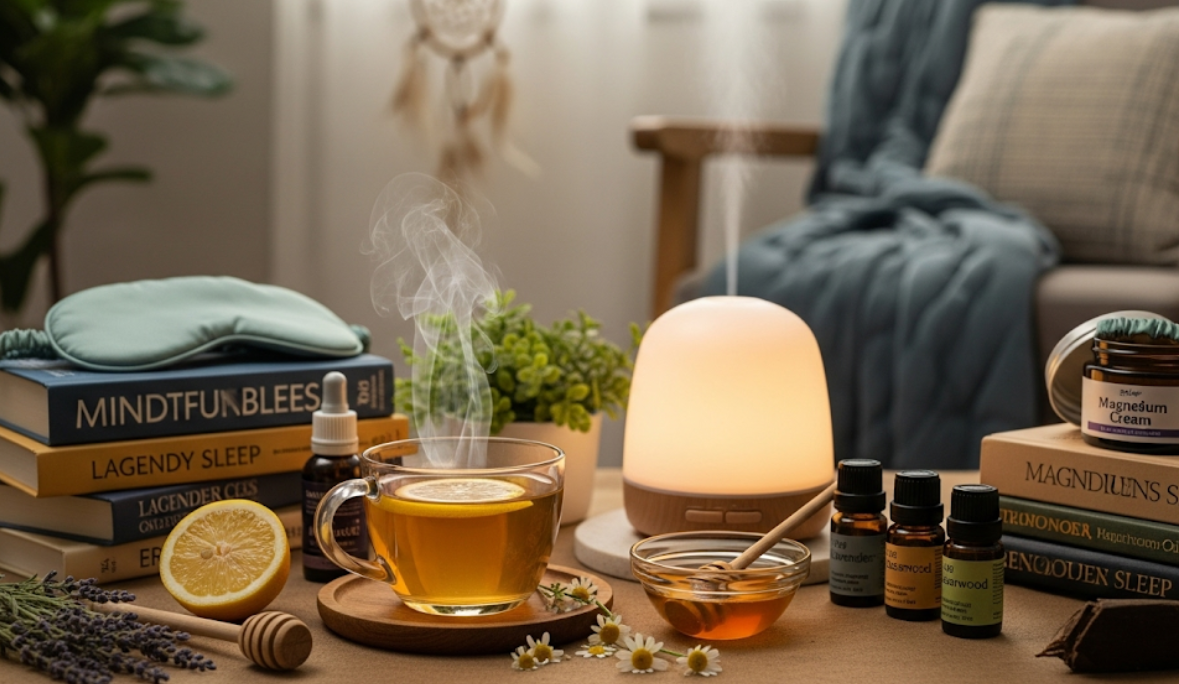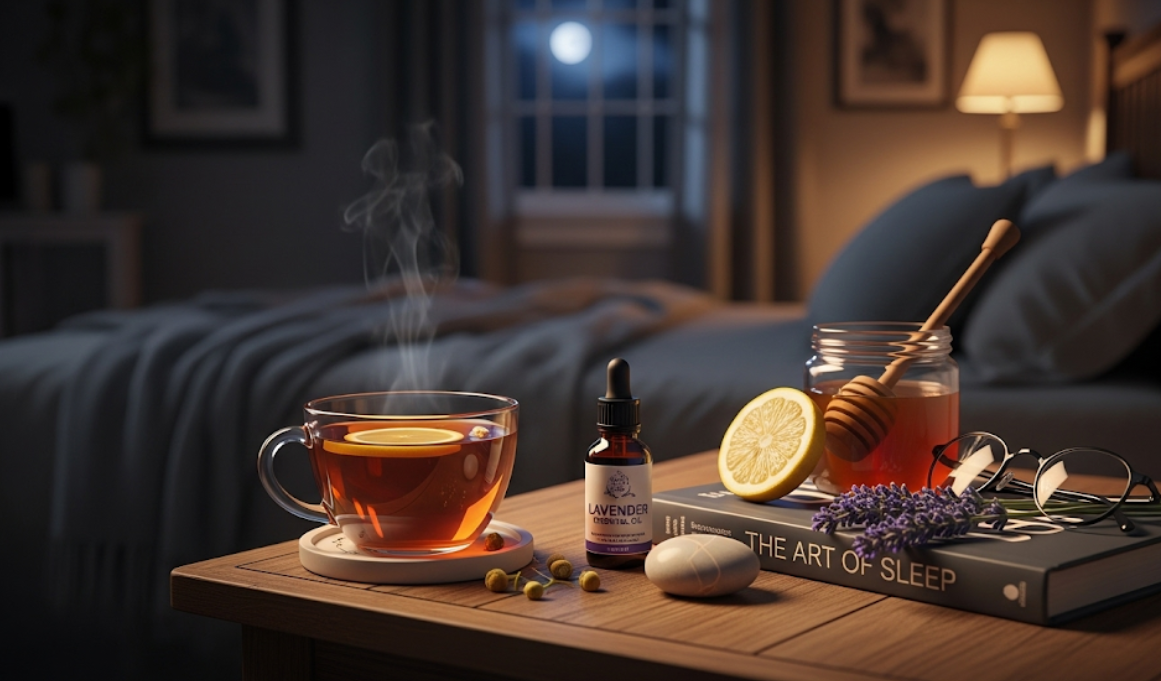Getting quality sleep is something most of us struggle with at some point. Some nights, no matter how tired you are, your mind just won’t switch off. Tossing and turning becomes a routine, and before you know it—you’re staring at the clock at 3 a.m. wondering how you’ll function the next day. The good news is: you don’t always need strong pills or expensive gadgets to fix your sleep. Nature and a few small lifestyle changes can make a big difference.
Below are 10 home remedies for better sleep that are easy, safe, and surprisingly effective.
Warm milk before bed 🥛
It might sound like something your grandmother used to say, but it works. Warm milk contains an amino acid called tryptophan that helps the body produce serotonin—a chemical linked to relaxation and sleep. A glass of milk about 30 minutes before bed can calm your nerves and set the right tone for sleep.
Chamomile tea 🍵
Chamomile has been used for centuries as a natural relaxant. Drinking chamomile tea reduces stress hormones and eases tension in the body. Unlike coffee or green tea, it has no caffeine, so it won’t keep you up. A cup before bedtime can help you drift off naturally.
Lavender aroma therapy 🌸
Smell plays a huge role in relaxation. Lavender, in particular, has compounds that affect the nervous system, making you feel calm. A few drops of lavender essential oil on your pillow, or using a diffuser in your room, can create a peaceful environment that supports deep sleep.
Banana snack 🍌
Bananas are not just filling; they’re loaded with magnesium and potassium, minerals that relax your muscles and prevent nighttime cramps. Eating half a banana in the evening can help your body unwind and prepare for rest.

Meditation and breathing exercises 🧘
Sometimes sleeplessness is not about your body but your mind. Deep breathing and light meditation help slow down racing thoughts. Even a 5-minute session of breathing in slowly, holding for a few seconds, and exhaling deeply can relax your system and make sleep easier.
A warm bath or shower 🚿
Warm water raises your body temperature slightly, and when you come out of the bath, your body cools down naturally. This cooling process signals to the brain that it’s time to sleep. It’s like a reset button for your body’s internal clock.
Magnesium-rich foods 🥬
Low magnesium levels are often linked to poor sleep and anxiety. Foods like spinach, pumpkin seeds, almonds, and dark chocolate can improve sleep quality. Adding them to your dinner or evening snack can give your body the nutrients it needs to rest well.
| Magnesium-Rich Foods | How They Help with Sleep |
|---|---|
| Spinach | Relaxes muscles and nerves |
| Pumpkin Seeds | Boosts serotonin production |
| Almonds | Reduces stress hormones |
| Dark Chocolate | Provides calm energy before bed |
Limit screen time before bed 📱🚫
We live in a digital world, but our screens often ruin our sleep. The blue light from phones, TVs, and laptops tricks the brain into thinking it’s still daytime. That’s why experts suggest putting screens away at least an hour before bed. Instead, read a book or listen to calming music.
Honey with warm water 🍯
Honey contains natural sugars that slightly raise insulin levels, allowing tryptophan to enter the brain more easily. A teaspoon of honey in warm water (or even milk) is a simple, soothing drink that helps you relax faster.
Consistent sleep routine ⏰
This may not sound like a remedy, but it’s one of the most powerful ones. Going to bed and waking up at the same time every day, even on weekends, trains your body clock. Once your brain gets used to a fixed sleep schedule, falling asleep becomes much easier.
Extra Quick Tips for Better Sleep
Keep your bedroom dark and quiet.
Avoid caffeine after evening.
Don’t eat a heavy meal right before bed.
Keep your room cool, not too warm.
Try soft background sounds like rain or ocean waves. 🌊
Frequently Asked Questions (FAQs)
1. How many hours of sleep do adults really need?
Most adults need 7–9 hours of quality sleep per night. Some may feel okay with 6, but less than that over time can cause health issues.
2. Can drinking coffee in the afternoon affect sleep at night?
Yes. Caffeine stays in your system for up to 6–8 hours. Drinking coffee even in the late afternoon can make it harder to fall asleep at night.
3. Is it safe to use home remedies every day?
Absolutely. Remedies like chamomile tea, warm milk, or lavender are natural and safe. Just keep them in moderation.
4. What if home remedies don’t work?
If sleep problems continue for more than 2–3 weeks despite trying remedies, it may be time to consult a doctor. Chronic insomnia can sometimes signal an underlying health issue.
5. Does exercise help in better sleep?
Yes, but timing matters. Exercise in the morning or afternoon helps. Doing intense workouts right before bed can actually keep you awake.
Final Thoughts
Good sleep is not just about closing your eyes—it’s about creating the right environment and habits for your body and mind. These 10 home remedies for better sleep are natural, affordable, and simple enough for anyone to try. You don’t need to adopt all of them at once. Start small—maybe replace your late-night scrolling with chamomile tea and deep breathing. Within a few nights, you may notice a calmer mind and deeper sleep. 😴





